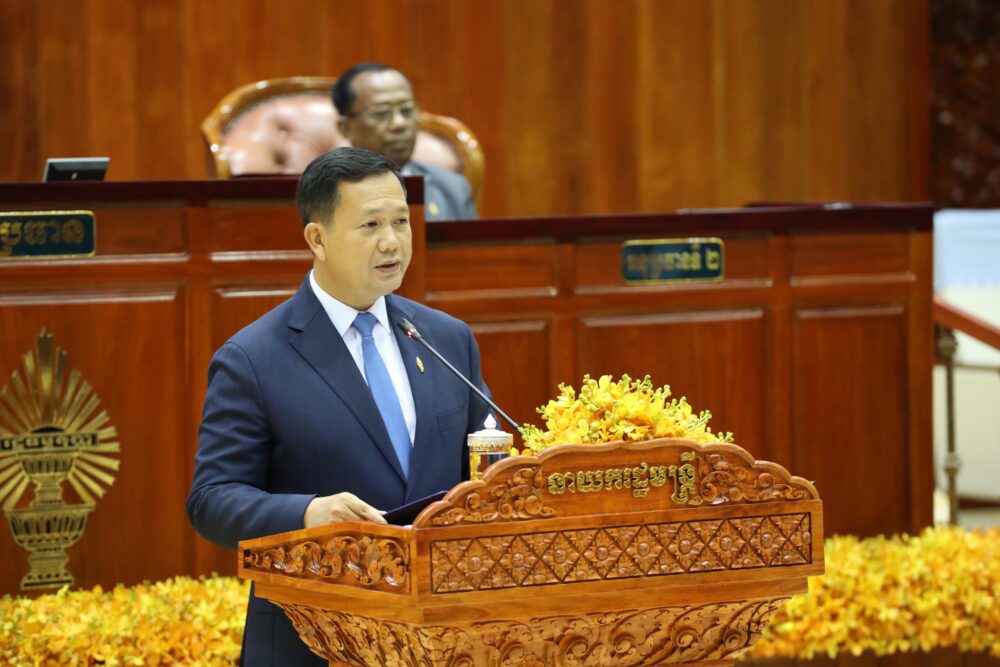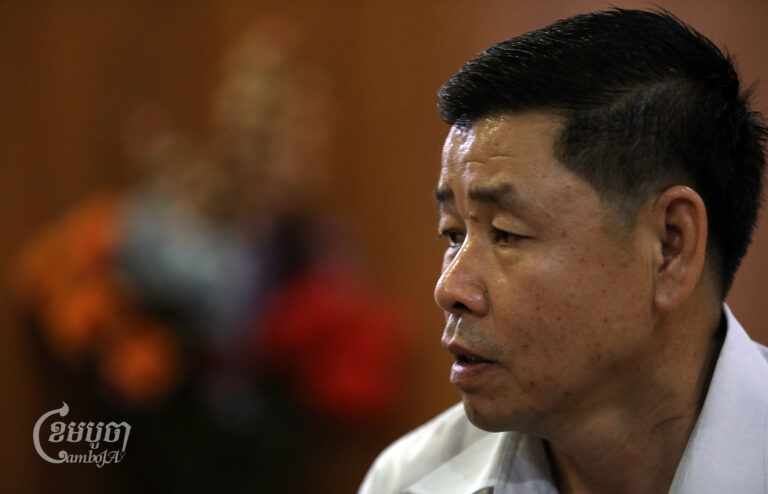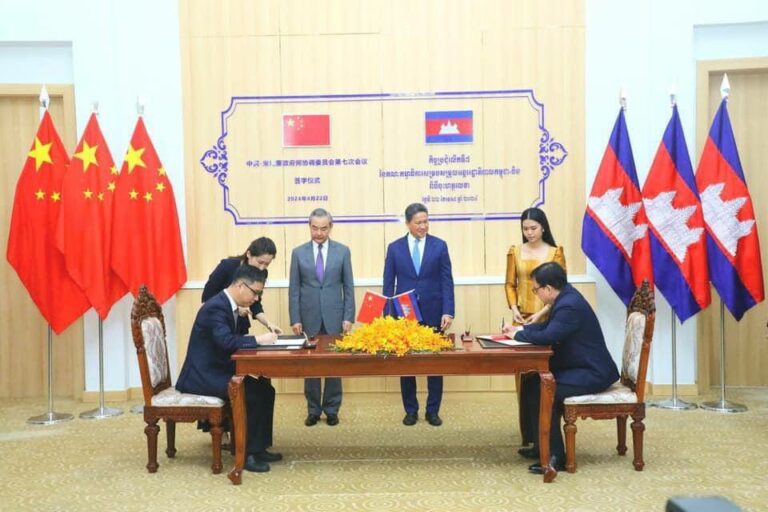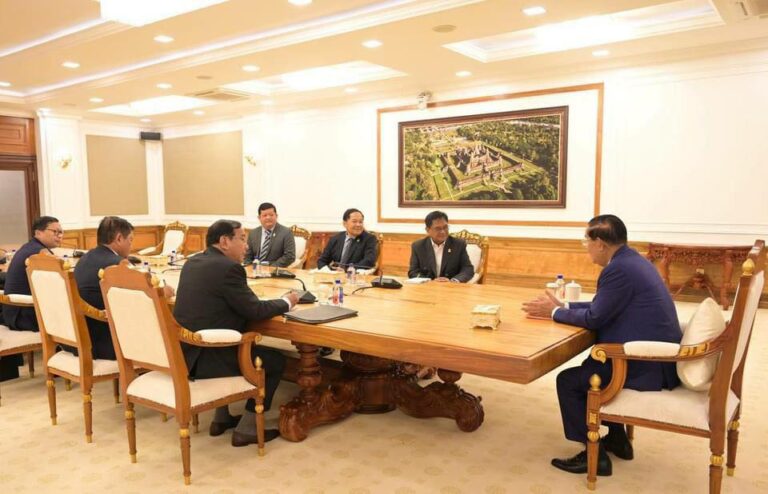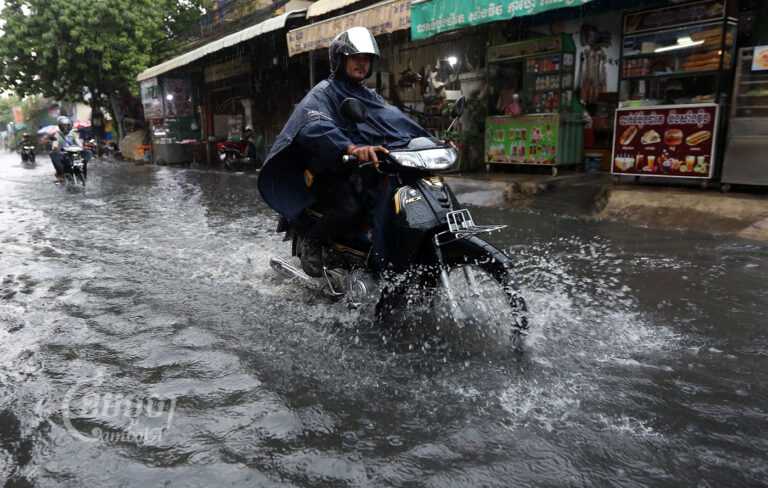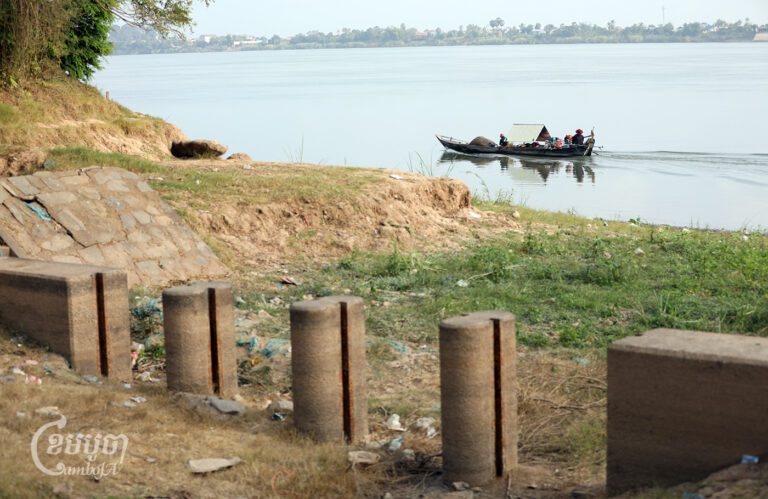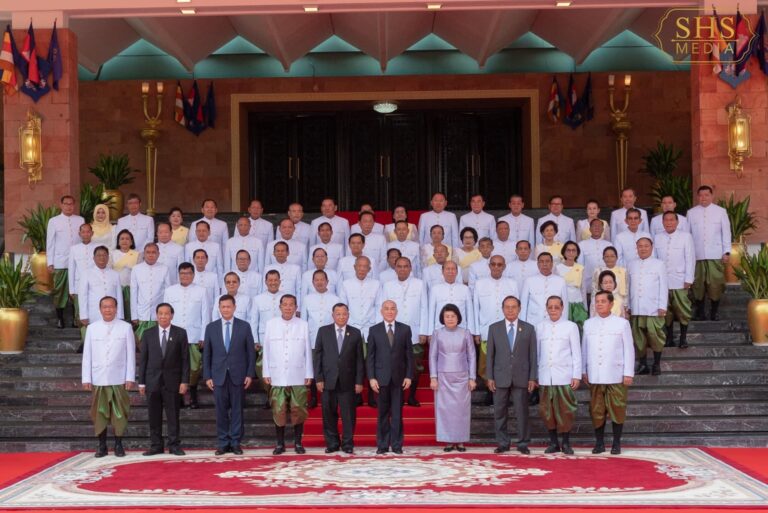After 38 years in power, Hun Sen finally stepped down from the prime minister role, leaving the top job to his eldest son Hun Manet this week but retaining significant powers.
A unanimous “package vote” announced by outgoing National Assembly president Heng Samrin on Tuesday confirmed Manet and his new cabinet ministers, transforming the government’s leadership.
The single, sweeping vote cemented Manet’s long-awaited succession and a broader transition of power across top ministerial jobs from the older generation to the younger generation, many of whom were related to each other.
Yet Hun Sen was not giving up power entirely. He was appointed as president of the Supreme Council of the King, retaining “the same status as the prime minister” according to a Tuesday royal decree.
Heng Samrin was named as the council’s honorary president with the same level of power and former top ministers Sar Kheng, Tea Banh, Men Sam An were appointed by separate royal decree to serve as council advisers with authority equivalent to a deputy prime minister.
Hun Sen said that he will remain engaged in politics as president of the ruling CPP and plans to serve as president of the Senate following an election in February.
“I left the executive position but I have not yet ended my political career,” he said. “I still have the ability to build the country.”
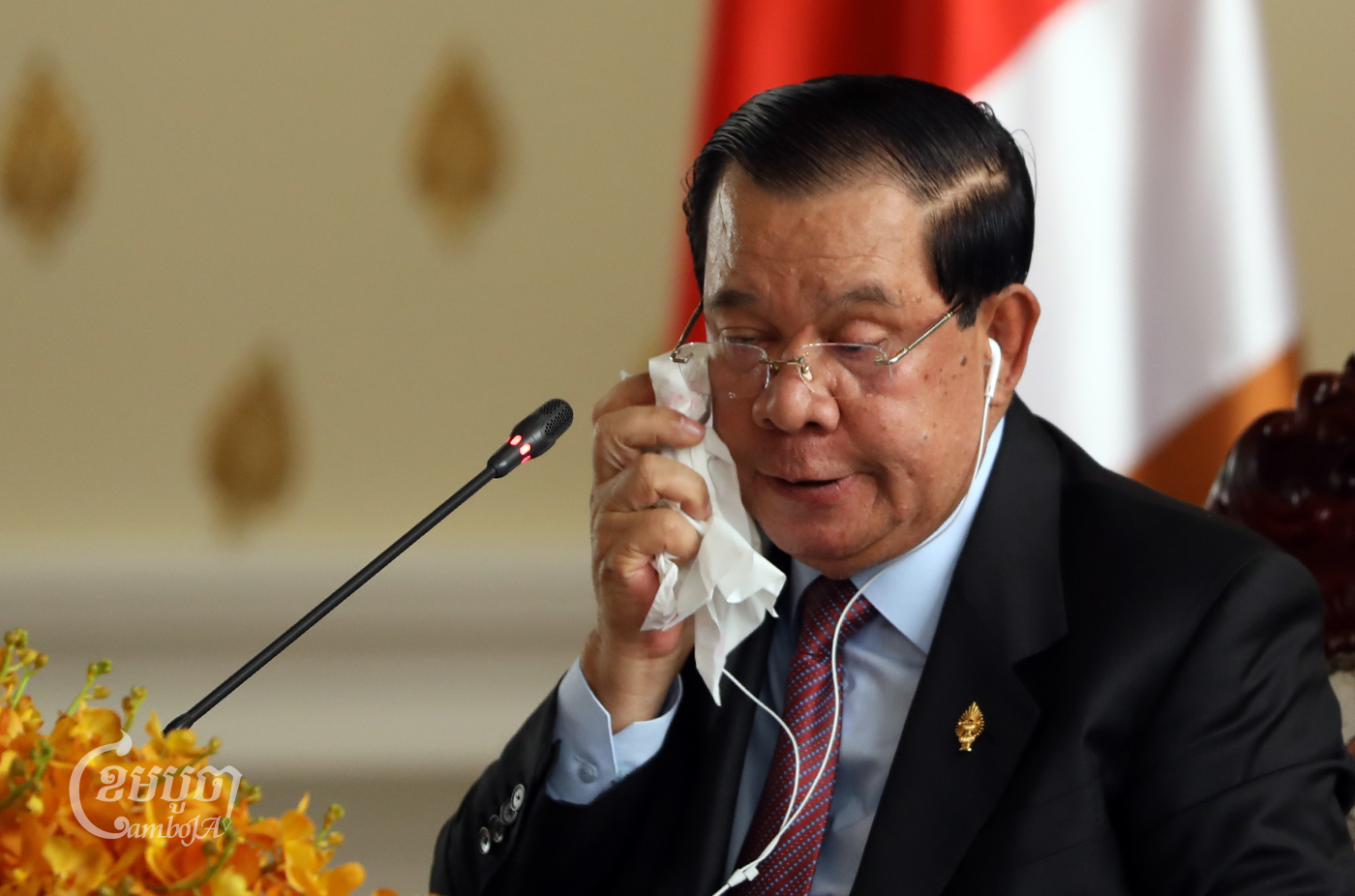
He shed tears at a press conference, recalling being separated from his son when he was still in his mother’s womb during the midst of the Pol Pot regime, before Hun Sen defected from the Khmer Rouge. He described his son as having the “saddest” childhood of his five kids, but believed he had overcome the adversity.
“He did not disappoint me, he has worked hard to learn that his knowledge was enough to lead Cambodia,” Hun Sen said.
“I would like to take this rare opportunity to express my sincerest appreciation….for having confidence in us and for entrusting us with this fateful mission to serve our nation,” Manet said. “I solemnly pledge and commit to all compatriots that I will lead our nation’s executive institution resolutely.”
In his speech to the assembly, Hun Manet outlined what he described as a range of priority policies, including expanding healthcare services with the goal of universal coverage, providing vocational and technical training for poor youth, institutionalizing the national social assistance program for poor households and extending social protection systems to the workers in the informal economy.
He also said he would seek to improve market access and price stability for farmers and deploy technical officers to all communes to bolster agricultural activities and help form farming associations.
He promised to ensure “absolute protection of peace” and “prioritize human capital investment” and “sustainably manage natural resources.”
“We will strive to carry out our great mission as representatives of citizens by cooperating with national institutions to promote democracy and strengthen the rule of law,” said incoming National Assembly president Khuon Sudary.
The ruling CPP claimed 120 seats in an election in which the leading opposition party was barred from competing. The remaining five seats went to the royalist Funcinpec party.
CPP spokesperson Sok Eysan could not be reached for comment.
Manet was first approved as prime minister by the King prior to the National Assembly swearing in, following new amendments to the constitution which allowed the party with majority of votes to directly decide on a prime minister before a new government was formed.
Political analyst Em Sovannara said he does not believe there will be significant changes for Cambodians as a result of Manet’s proposed policies, despite the changes in government leadership.
“Citizens have not entirely believed in these young leaders because we do not see his [Manet’s] big achievements to intervene for helping people who have suffered,” Sovannara said. “I have not much hope for [freedom expression] because independent media published negative issues of the government and seemed to lose its voice and have not been restored.”
Ny Sokha, president of human rights NGO Adhoc, said that the key will be whether policies to improve people’s lives are successfully put in place.
“Whether the implementation will reflect the facts stated in the policy or not, that point is important,” he said.
But he was pessimistic that the new government would advance human rights, expand democracy or represent any meaningful development in Cambodia’s political economy: “Corruption and nepotism are still interwoven in our society.”


